
O Instituto Igarapé utiliza cookies e outras tecnologias semelhantes para melhorar a sua experiência, de acordo com a nossa Política de Privacidade e nossos Termos de Uso e, ao continuar navegando, você concorda com essas condições.
2023 marked a significant turning point for the Igarapé Institute, signaling a new phase while simultaneously reaffirming our core commitments. We have continually evolved to meet emerging challenges, and, as a result, climate and environmental security have become increasingly significant in our work. When the institute was founded in 2011, we chose the indigenous Tupi word “igarapé” — meaning “canoe path” — as a symbol of our desire to connect different issues and sectors of society in pursuit of solutions, and to facilitate the exchange of insights between Brazil and the world. The Amazon Basin remains pivotal in our research, partnerships, and initiatives. We engage with public policymakers and corporate leaders to bring about meaningful change.
In this digital version of the report, which provides a more condensed and interactive experience, in addition to the traditional PDF format, we detail how we are addressing these issues without sidelining other vital thematic areas, such as public safety, digital security, and international cooperation.
We published an article called “The Pulse of Disinformation” that examined the spread of fake news during the 2022 election in Brazil. The HLAB – of which Ilona Szabó de Carvalho is a member – published the report “A Turning Point for People and the Planet,” which presents proposals for effective and inclusive global governance.
We released the initial publication in the “Follow the Money” series, offering recommendations to combat environmental crime in the Amazon by preventing money laundering. We also participated in the 25th Forum of Governors of the Legal Amazon. At the annual meeting of the Brazilian Forum on Public Security, we discussed the multidimensional nature of insecurity in the Amazon.
We launched the second publication in the “Follow the Money” series, which examines how anti-money laundering systems in Brazil, Colombia, and Peru tackle environmental crime. We partnered with Open Knowledge Brazil to launch “Que Arma é Essa?,” which ranks the transparency of firearm data collected by Brazilian states.
We launched “We Are Vitórias-Régias” during the Amazon Dialogues at the Amazon Summit. This study maps risks and vulnerabilities for human rights and environmental defenders in the Amazon basin. Additionally, we released protection guides for defenders in Brazil, Colombia, and Peru. In partnership with InSight Crime, we also presented the publication “Stolen Amazon: The Roots of Environmental Crime in the Tri-Border Regions.”
At Climate Week in New York, we organized Minister Fernando Haddad’s presentation of the Ecological Transformation Plan to policymakers and opinion leaders. We also collaborated with the Arapyaú Institute and Legal Amazon Consortium on a discussion of solutions and partnerships to finance Brazil’s green transition. Additionally, we took part in a panel with Luciano Huck.
We published studies on trends in violence against women in Brazil, Mexico, and Colombia. We published a Global Futures Bulletin that made the case for a “Global Incentive Mechanism to Protect Standing Forests.” The Brazilian Ministry of Justice reinstated the National Public Security Council (Conasp) and invited Igarapé to participate.
Environmental crimes are closely linked to other illicit activities, including violent offenses, economic misconduct, and regulatory infractions. In June 2023, the Igarapé Institute unveiled the first report in its “Follow the Money” series, discussing how money laundering is part of this criminal network in the Amazon. This pioneering study has helped key players pay more attention to the issue. The Brazilian National Strategy for Combating Corruption and Money Laundering (ENCCLA) has made environmental crime a priority for 2024. Igarapé/span also supported the Action Plan for Prevention and Control of Deforestation in the Legal Amazon (PPCDAm). We have also addressed violence against environmental defenders in our research and guides. Our work has resonated in the press and was presented at events such as the Amazon Summit’s Amazonian Dialogues.
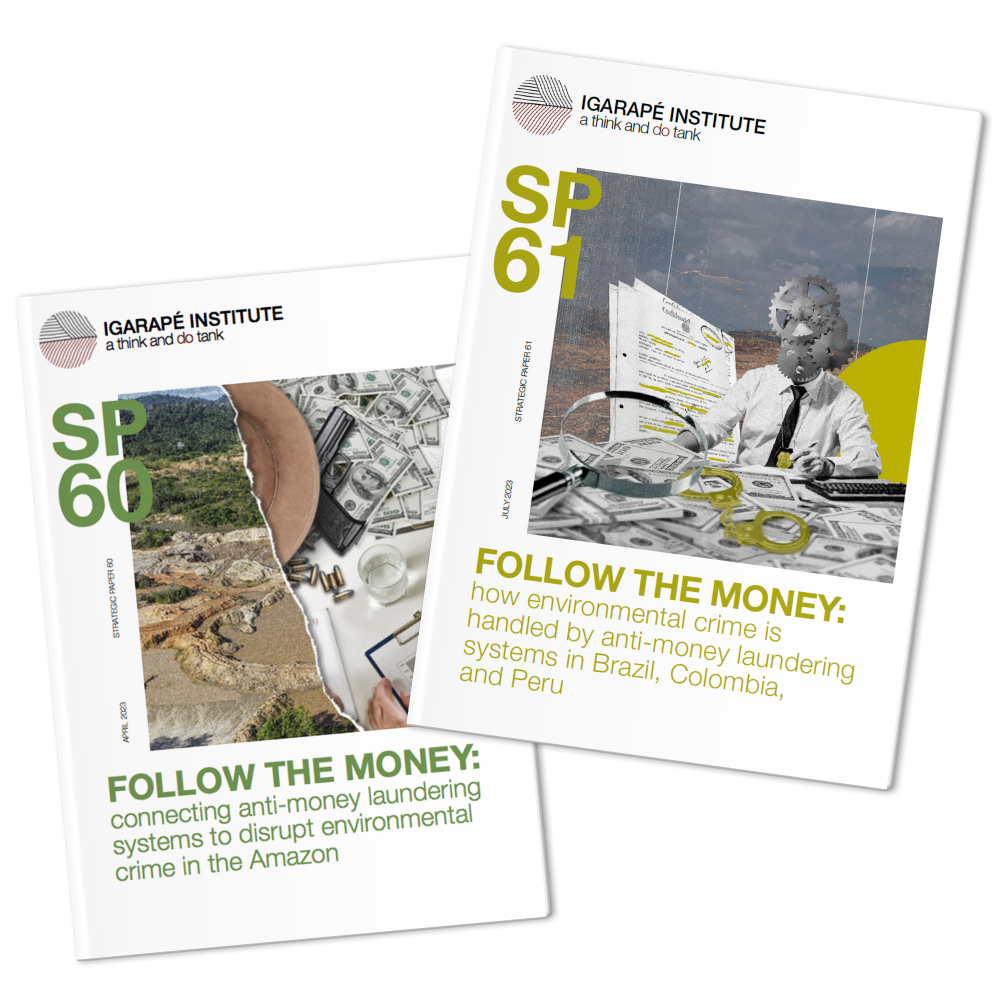
The Igarapé Institute is leading the way in developing cross-border collaboration among the nations of the Pan-Amazonian region to find solutions, engage in dialogue with governmental bodies, and stimulate public debate. In March, we held the “Overcoming Environmental Crimes” seminar, the first in a series of regional meetings with Interpol and the Associação Íbero-Americana de Ministérios Públicos (Aiamp). A Working Group was formed to address environmental crime in the Amazon region within the Red Jaguar network. This network brings together environmental law enforcement from across the Ibero-American nations. We also participated in the organization of the Amazon Summit, held in August in Belém (PA). The event was notable for including the fight against environmental crimes in the Belém Declaration, signed by the eight Amazonian countries, a significant achievement for which we worked hard.
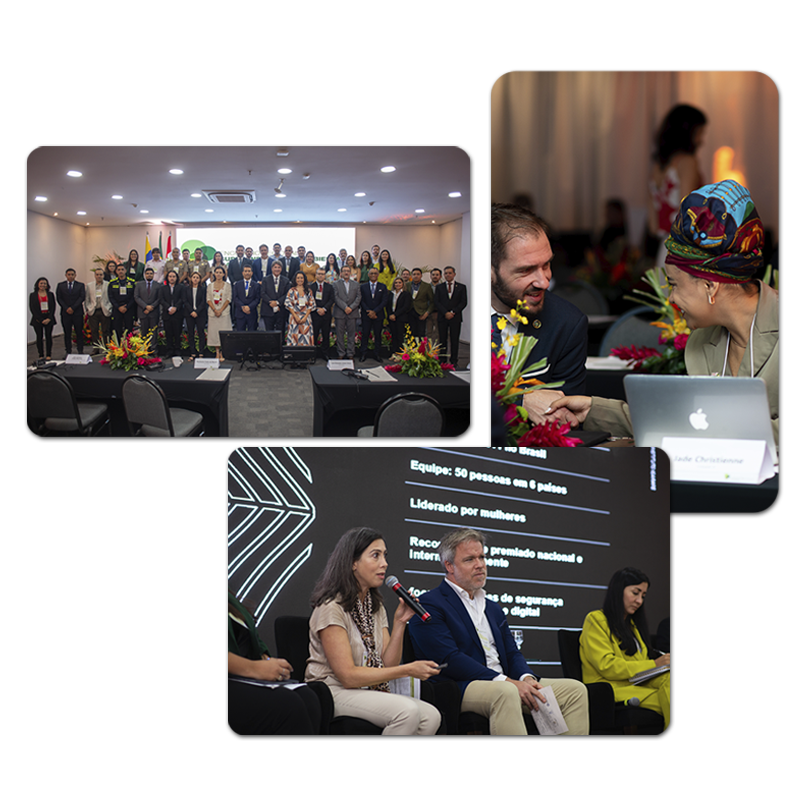
Creating conditions for new economies to develop in the Amazon region is an essential step toward reducing deforestation. In January, the Igarapé Institute showcased the Amazônia In Loco platform at the World Economic Forum. This innovative tool consolidates interactive maps and charts to help the private and public sectors reduce risks and improve investments in the region. We also contributed to the Ecological Transformation Plan and the Forever Tropical Forests Fund, both initiatives of the Brazilian government, by providing technical support and fostering debate on the proposals. Our efforts also included insights related to the use of strategic minerals for a decarbonized world and the expansion of an Amazonian bioeconomy that respects the region’s socioenvironmental diversity. A crucial venue for discussing financing mechanisms and other solutions from our Climate Security program was COP28, hosted in November in Dubai.
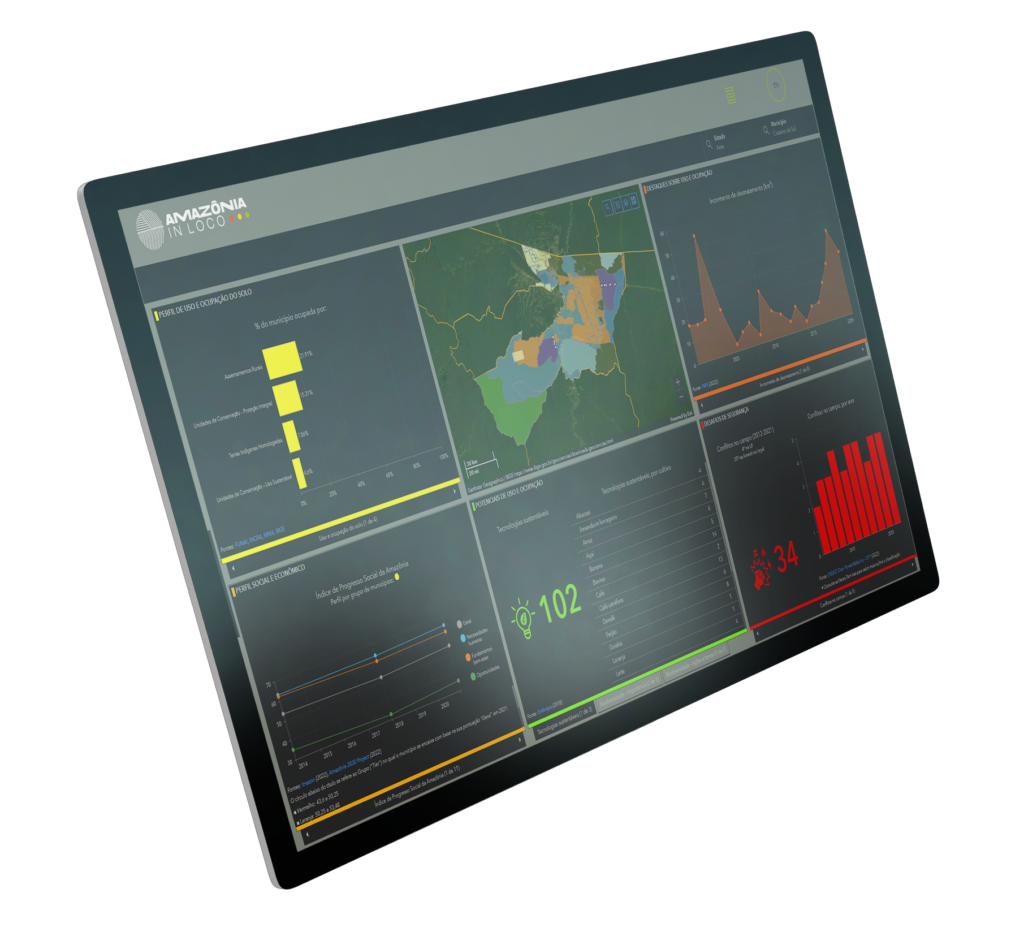
Our climate and environmental initiatives have gained momentum in influential forums such as the High-Level Advisory Board (HLAB), established by UN Secretary-General António Guterres. Co-Founder and President of the Igarapé Institute, Ilona Szabó is the only Latin American member in the group. In April 2023, the HLAB released a report with a groundbreaking plan to reshape global governance, aiming to equip the multilateral framework to adeptly navigate both present and impending challenges, from the climate crisis to sustainable development financing gaps. Ilona also co-leads the World Economic Forum’s Global Future Council on the Future of Nature and Security. Additionally, Igarapé took part in the Global Solutions Summit in May and the SDG Action Weekend, a key event during the UN General Assembly’s High-Level Week in September.
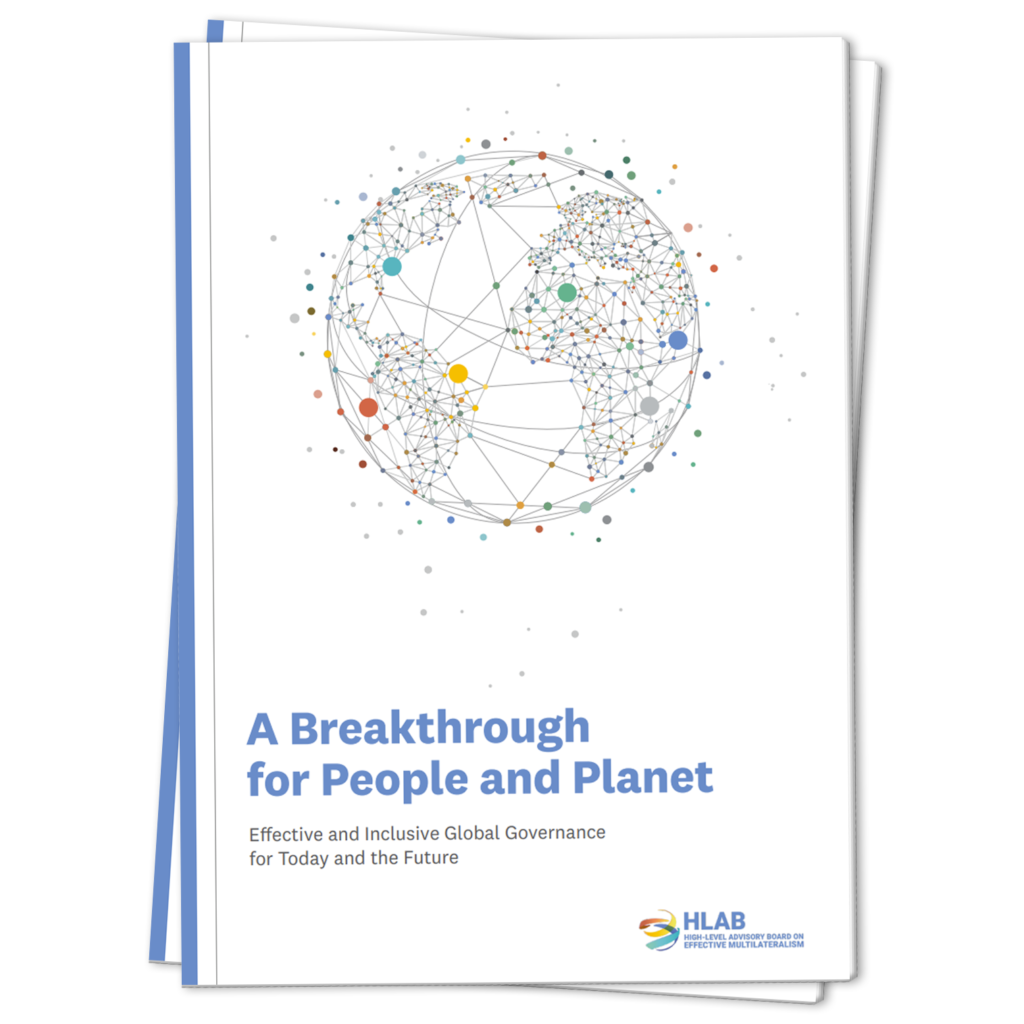
In 2023, Brazil began rebuilding its gun control policies after years of dismantling them. We played a key role in this process by providing technical support to the federal government, which led to the new firearm regulation in July. We also collaborated with thirty other organizations to analyze the decree’s modifications and shared our perspective through an op-ed. We also launched the “Que arma é essa?” data transparency ranking created in partnership with Open Knowledge Brazil. This index assesses the quality of gun-related information disclosed by all 27 state governments. In our broader initiatives in public safety, we rejoined the National Public Security Council, which was reinstated by the Ministry of Justice and contributed to the design of “Juntos pela Segurança” program in Pernambuco. We continue to consolidate and update our database on violence against women through the EVA platform. We also supported the launch of the National Network of Services for Former Inmates (Renaesp), initiated by the National Council of Justice (CNJ).
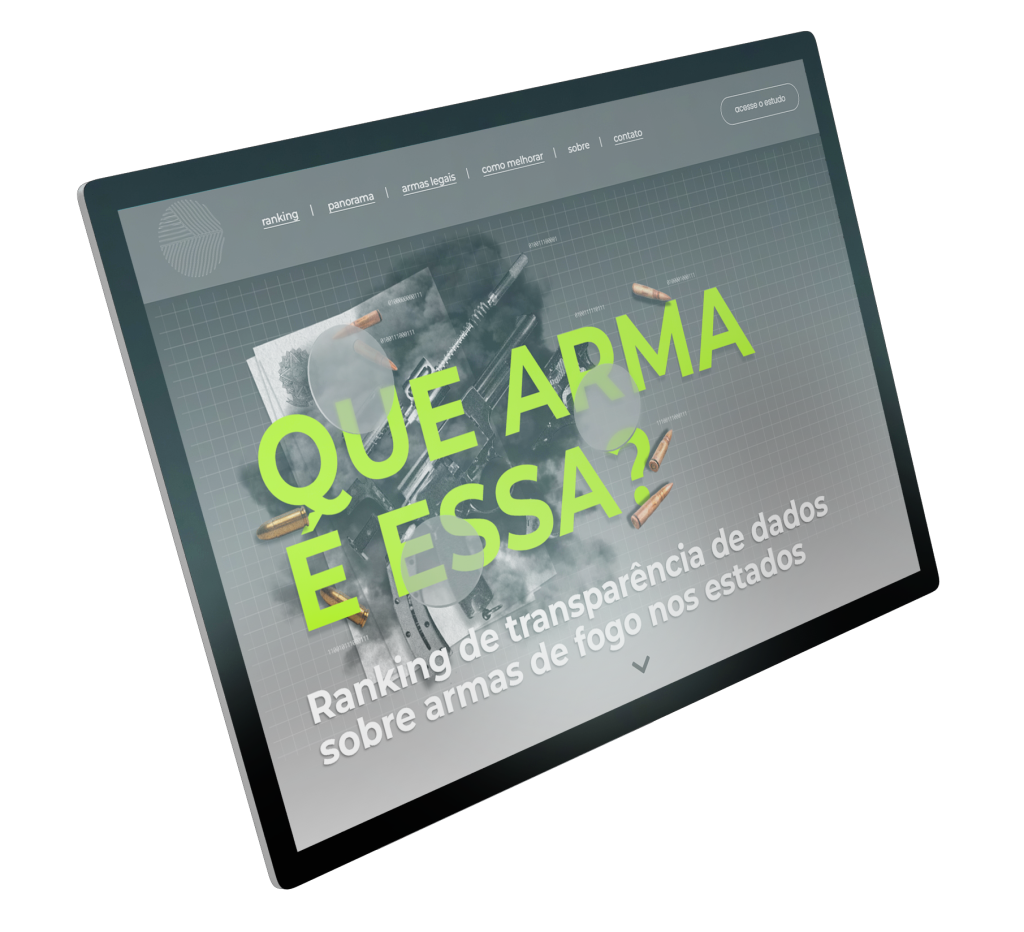
The Igarapé Institute has expanded its efforts in digital security, focusing on two areas that demand global action: mitigating risks associated with the use of predictive technologies and combating misinformation. We established the Global Task Force on Predictive Analytics for Security and Development in partnership with New America, bringing together thinkers, practitioners, and human rights advocates to assess the implications of using these technologies and develop recommendations for their implementation. In the fight against disinformation, our Disinformation Pulse report was discussed at the Brazilian Center for International Relations (Cebri) and Harvard University regarding how to apply lessons learned from the 2022 Brazilian elections.
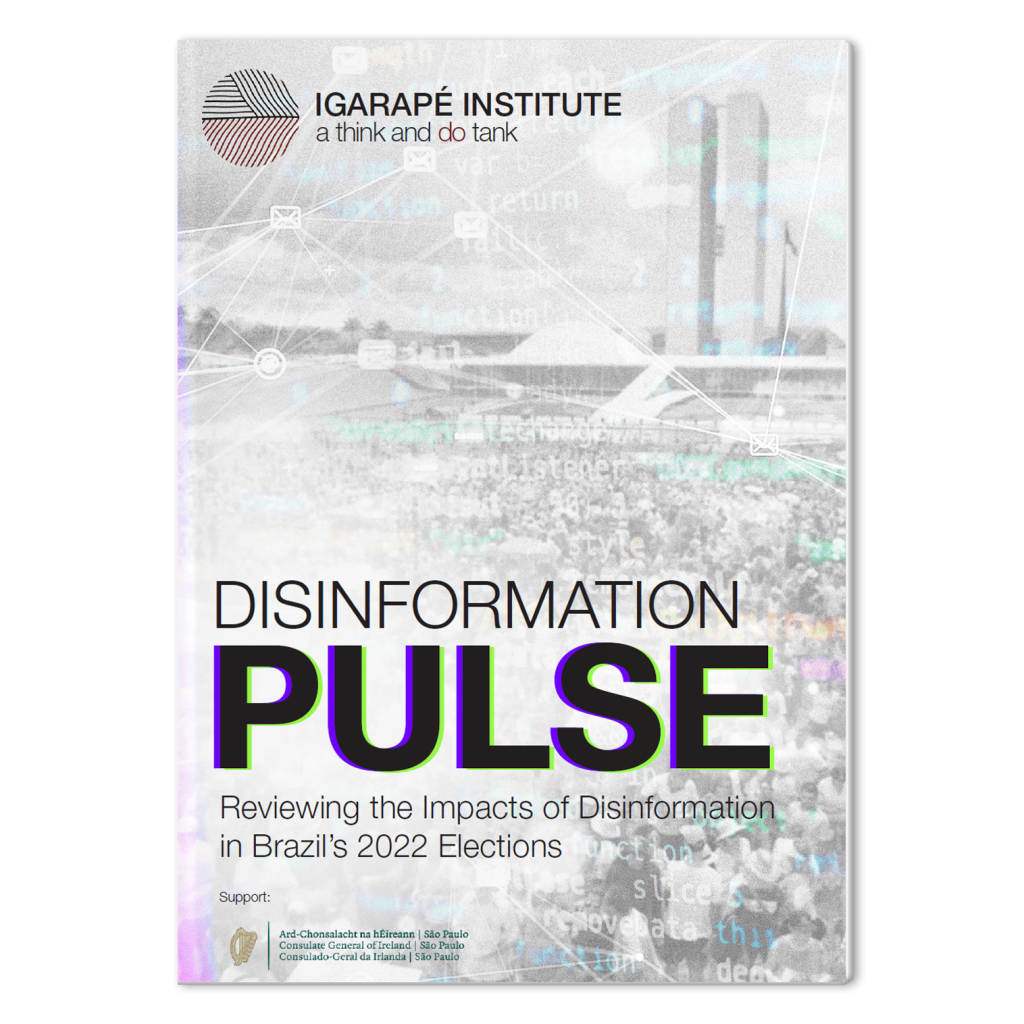
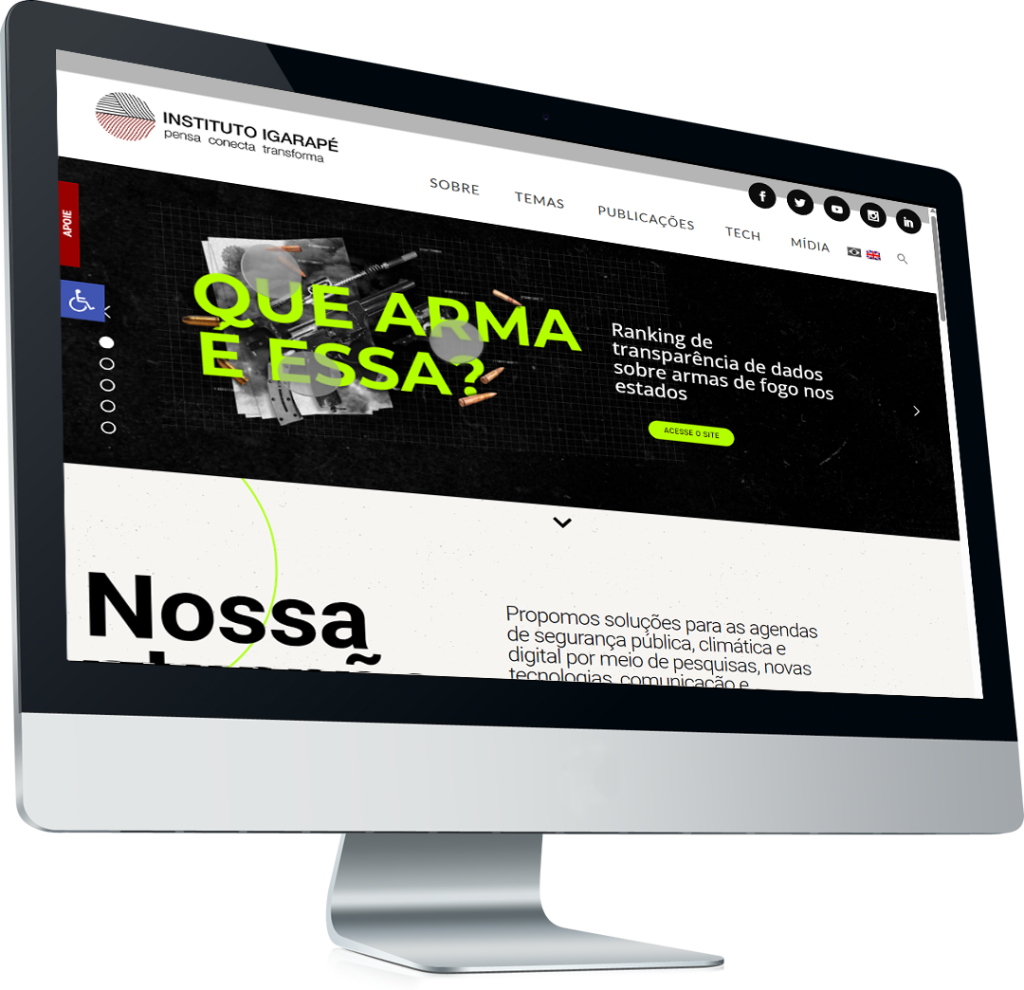
Views on our website
Publications
Opinion pieces
Participation in national and
international events
Citations in the press
Followers across all
social media channels
A window of opportunities has opened
The first quarter of 2024 was a period of intense activity for the Igarapé Institute, and there is no time to waste. We began the year by participating once again in the World Economic Forum. We intensified our efforts in relation to Brazil’s G20 presidency, serving on the executive secretariat of the National Advisory Council for the T20 think tank engagement group and co-leading a task force on strengthening multilateralism. We hosted events attended by hundreds of people, such as the First Brazilian Forum on Climate Finance and the II Regional Meeting – Strategies for Tackling Environmental Illicit Activities in the Amazon.
We also continued to work on other fronts, such as protecting women in the Amazon, regulating artificial intelligence, and public security. The challenges are multiple and diverse, and Igarapé will continue to expand the small streams that create pathways that will lead us to a sustainable future for people and the planet.

O Instituto Igarapé utiliza cookies e outras tecnologias semelhantes para melhorar a sua experiência, de acordo com a nossa Política de Privacidade e nossos Termos de Uso e, ao continuar navegando, você concorda com essas condições.

